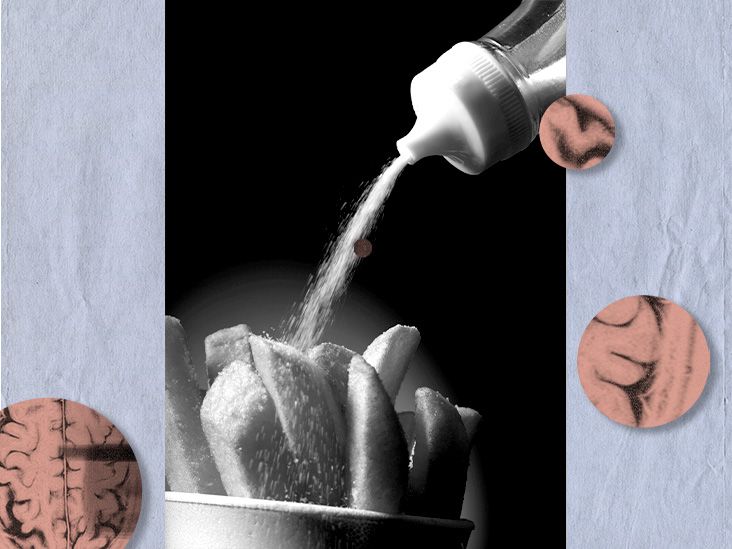Nocturnal hypertension is high blood pressure that a person experiences at night. Frequently waking with the need to urinate, sleep apnea, and difficulty breathing are all symptoms of high blood pressure while sleeping.
Blood pressure typically decreases, or dips, during the night, according to a natural sleep-wake cycle called the circadian rhythm.
During the day, a person’s blood pressure should not be higher than
Elevated nocturnal blood pressure may contribute to many of the same complications as high blood pressure in general, such as stroke, heart attack, and kidney failure.
This article looks at the symptoms, causes, and risk factors of nocturnal hypertension, as well as the diagnosis of the condition. It also discusses treatment, prevention, and the outlook for nocturnal hypertension.

People sometimes refer to high blood pressure, or hypertension, as a silent killer. This is because, in
People with nocturnal hypertension may experience some disruptions to sleep, which
- sleep disturbances
- nocturia, or frequently waking with the need to urinate
- sleep apnea
- difficulty breathing, which may cause gasping or snoring
According to the
Typically, blood pressure decreases by
In people with hypertension, the blood pressure does not always decrease as far as it should, and in some cases, it increases.
Researchers
- hypertension
- nocturia
- obstructive sleep apnea
- a sedentary lifestyle
- lack of adequate sleep
- diabetes
- kidney disease
- high salt intake
- stress
It can be difficult for doctors to diagnose nocturnal blood pressure because the condition typically occurs in a person’s home while they are sleeping.
A person is also not able to wake in the night and measure their blood pressure, as the readings may change when the person wakes.
To obtain a diagnosis of nocturnal hypertension, a person
The treatment for nocturnal hypertension is similar to that of hypertension in general.
Doctors
They may also suggest antihypertensive medications or medication to treat conditions associated with hypertension, such as sleep apnea or diabetes.
Medication
- beta-blockers, which block adrenaline to lower stress on the heart
- diuretics to help the body get rid of excess salt
- calcium-channel blockers to increase oxygen and blood flow to the heart
- vasodilators, which widen blood vessels to increase oxygen and blood flow in the body
- angiotensin-converting enzyme (ACE) inhibitors, which stop the body from producing the hormone Angiotensin II
However, to treat nocturnal hypertension, a doctor may recommend that a person takes their medication later than usual or takes further doses during the night.
Optum Perks is owned by RVO Health. By clicking on this link, we may receive a commission. Learn more.
To help prevent high blood pressure in general, the
- Eating a healthy diet: A person may benefit from following the DASH diet, which is rich in magnesium, protein, fiber, calcium, and potassium and low in sodium.
- Being physically active: Adults should engage in moderate-intensity exercise for at least 2 hours and 30 minutes per week.
- Getting enough good quality sleep: Lack of quality sleep can contribute to hypertension, heart disease, and stroke.
- Avoiding or limiting alcohol consumption: Excessive alcohol can increase a person’s blood pressure.
- Stopping smoking: Smoking raises a person’s blood pressure and increases their risk of heart attack, stroke, and other illnesses.
According to a
- all cardiovascular events, such as heart attacks and heart disease
- organ damage, such as kidney failure
- stroke
- diabetes
There is no cure for high blood pressure, but treatment can help people manage their symptoms and reduce the risk of complications. In mild cases, healthy lifestyle choices may bring the condition under control.
A person should contact a doctor if their blood pressure exceeds
Nocturnal hypertension may not have symptoms. However, if a person experiences poor sleep or has a condition associated with nocturnal high blood pressure, a doctor may wish to check their blood pressure levels.
Below are the answers to some frequently asked questions about nocturnal hypertension.
Is nocturnal hypertension dangerous?
Yes, nocturnal hypertension may contribute to various severe health complications, such as heart attack and stroke. If a person is concerned about having nocturnal high blood pressure, they should speak with their doctor.
Can stress cause nocturnal hypertension?
Stress
Stress can cause a release of adrenaline, which can temporarily raise blood pressure, but these effects are typically short-term.
Blood pressure usually decreases during the night, according to a person’s circadian rhythm. In people with nocturnal hypertension, blood pressure does not decrease enough or sometimes rises.
Potential risk factors for nocturnal hypertension include sleep apnea, kidney disease, and diabetes. If a person does not treat nocturnal hypertension, they may be at higher risk of various health complications, including heart attack and stroke.
To receive a diagnosis of nocturnal hypertension, a person may need to wear an ambulatory blood pressure monitor. Treatment may include medication and lifestyle changes.

